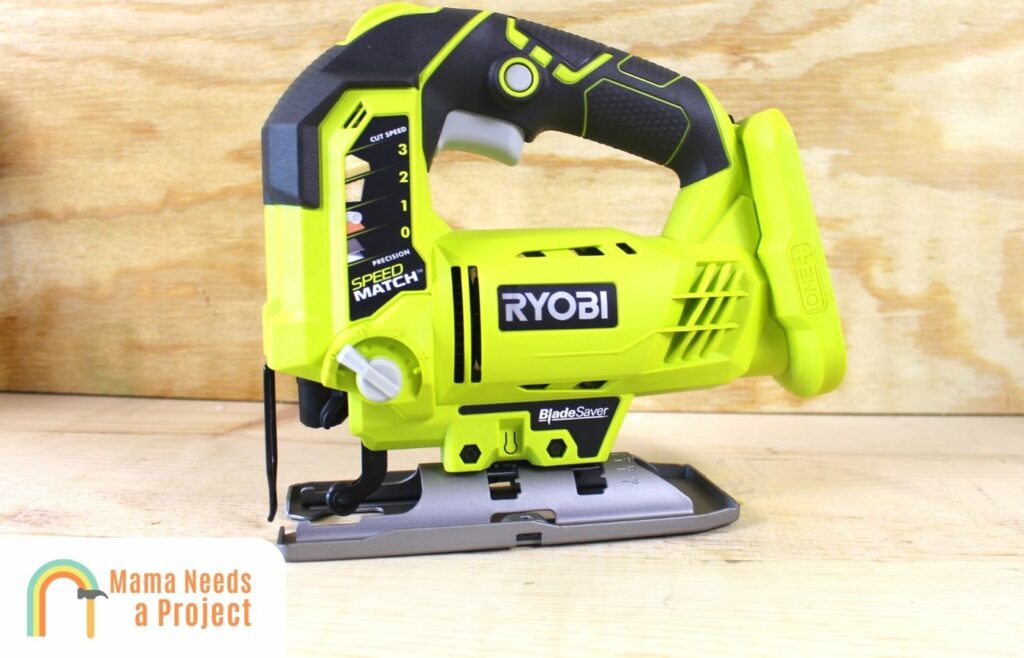Ridgid vs Ryobi: My Thoughts (2024)
Ridgid and Ryobi are two popular brands when it comes to power tools and equipment. With a wide variety of products, both brands offer quality tools for just about anyone.
I’ve used both brands for years and have a few strong opinions when it comes to these two brands. Here are my thoughts!
- Ridgid hand tools and power tools are better than their Ryobi counterparts, mainly because they’re longer-lasting and capable of handling heavy-duty tasks. Moreover, I found that Ridgid batteries are stronger and more reliable.
- But despite their superiority, Ridgid products aren’t much more than Ryobi products, and they usually come with a comprehensive warranty.
Ridgid vs Ryobi Power Tools
Quality & Reliability

When it comes to overall quality, Ridgid tools have Ryobi tools beat, mainly because Ridgid tools employ better, more reliable components.
And just because these are high-quality tools doesn’t mean they’re complicated. In fact, in most cases Ridgid tools are as easy to operate as Ryobi, and in some cases they’re even easier to operate.
But just because Ridgid products are better in terms of overall quality doesn’t mean Ryobi products are junk—quite the opposite!
Ryobi products can handle most of the tasks that homeowners and craftsmen perform routinely, and if properly maintained they can work well for years.
But if you measure the product lines of both brands against each other, it’s undeniable that Ridgid’s is superior.
Product Lineup
Both brands have pretty extensive product lineups, but Ridgid sells more specialty tools, specifically those that are used often when performing plumbing, pipe-fitting, building, or HVAC maintenance tasks.
As far as everyday power tools go, their selections are about the same. Both sell cordless power tools, including cordless drills, impact drivers and wrenches, angle grinders, and rotary hammers.
And when it comes to product availability, both brands can be found in big-box hardware stores like Home Depot, but Ridgid products are slightly harder to find.
Ease of Use
Neither Ridgid nor Ryobi products are difficult to use, and this is largely because both brands manufacture their products without the bells and whistles that often inhibit tools rather than improve them.
For this reason, both brands can be placed in the “consumer brand” category.
That said, Ridgid often markets their tools as being built for a professional setting, and many of the specialty tools they’re selling right now—for plumbing, pipe-fitting, etc.—were definitely designed with professionals in mind.
Features
When taking the entirety of both brands’ product lines into consideration, it’s fair to say Ridgid products offer more features.
Again, this isn’t to say Ryobi tools are absolutely bare bones—that couldn’t be further from the truth.
However, since Ridgid manufactures specialty tools for a handful of trades, one can reasonably conclude their products—on the whole—offer more features, specifically the kinds needed to complete complex tasks.
Batteries
Both brands manufacture a range of batteries for their power tools, but Ridgid’s are more powerful. Plus they hold a charge longer and they have longer lifespans.
Ryobi batteries, on the other hand, need recharging more frequently and their lifespans aren’t as long.
That said, Ryobi batteries are much more interchangeable than Ridgid batteries, which is important if you have many tools that run on the same kind of battery.
Price
When it comes to price, neither brand should be considered a high-end tool manufacturer.
Taking into account all the tools being made across the power tool industry today, it’s fair to say most of the tools Ridgid and Ryobi manufacture belong in the mid- to upper-mid section of that grand price range.
And when compared one-to-one across different tool categories, there’s not much difference (in terms of price) between Ridgid and Ryobi.
That said, Ridgid’s specialty products are more expensive than the specialty products Ryobi sells, but this is largely because Ridgid’s specialty products need more expensive components to be able to carry out heavy-duty tasks.
Warranty
Ridgid and Ryobi both offer a handful of warranties, and the most comprehensive of these are usually extended upon purchase of an expensive product.
For example, if you buy any of Ridgid’s stationary power tools for pipe-fitting or construction, your purchase should come with a multi-year limited warranty.
Some Ridgid and Ryobi products are covered by a lifetime service agreement, which is slightly different from your standard warranty.
Whatever you do, don’t try to fix your malfunctioning power tool on your own if it’s under warranty, as doing so could void the agreement.
History of Ridgid Tools
Ridgid opened their doors in 1923 as a pipe wrench manufacturer, but these days they sell hundreds of tools, most of which can be operated by professionals and hobbyists.
Their pipe wrenches sold well, so in the late ’20’s and early ‘30s they started making related products, like end wrenches and pipe cutters.
In the 1940s, the company moved its operations from North Ridgeville, Ohio to Elyria, Ohio, and this has been their home base ever since.
In Elyria, Ridgid operates corporate offices, a manufacturing site, training facilities, and technical services centers.
Later in the decade, the company would release its Model 400 Power Drive (1948), and at the start of the new decade they released the Model 500 Threading Machine (1950).
Seven years later came the Model 535 Threading Machine, and then the Model 300 Threading Machine came out right before the close of the decade.
Their first overseas factory was opened in Belgium in 1962, and 4 years later they were bought out by Emerson Electric.
Emerson still makes Ridgid wet/dry vacs, but most power tools with the Ridgid brand are manufactured by Techtronic Industries Company Limited (TTI), a company in Hong Kong.
Ridgid Pros
- Durable & Reliable: Products are built to last and made with high-quality components.
- Wide Selection: There’s always a wide selection and it’s being updated all the time.
- Usability: Products are designed for professionals yet they’re usable to hobbyists and DIYers.
- Product Demos & Training: There are demo videos for virtually every product, and they host training programs.
Ridgid Cons
- Interchangeability: Many of their products only work with Ridgid accessories.
- Availability: Not as common in big-box hardware stores and rarely carried in mom-and-pop stores.
History of Ryobi Tools
Ryobi’s roots can be traced back to 1943, when it was founded in Fuchu, Hiroshima as the Ryobi Seisakusho Company.
They specialized in making die-cast products for about two decades, and then in the late ‘60s they started making power tools.
In 1973, the company changed its name to the one it has currently, and by the 1980s they were selling their tools all around the world.
Their first overseas production facilities were in the United States, Europe, Mexico, China, and Thailand, and today they operate 12 manufacturing centers across six countries.
At present, their only U.S. manufacturing center is in Shelbyville, Indiana, and this center mainly manufactures products for the auto industry.
Ryobi Pros
- Easy to Use: Their corded and cordless tools are designed with simplicity in mind, so they’re easy to operate
- Affordable: Ryobi tools are much more affordable when compared to products made by competitors.
- Lightweight: Their products are easy to maneuver, and can be operated for an extended period, since they’re lightweight.
- Battery Interchangeability: Many of their power tools run on the same battery system.
Ryobi Cons
- Durability: Ryobi products don’t last as long as competing products and most aren’t designed for heavy-duty tasks.
- Power: The battery systems that power these tools have short lifespans and require frequent charging.
Ryobi vs Ridgid Final Verdict
So if you were to stack Ryobi’s line of products against Ridgid’s, who would come out on top?
Well, the answer here is clear: Ridgid.
Ridgid’s products possess all the qualities that make Ryobi products good, but whereas Ryobi products are only durable enough to handle basic tasks, Ridgid products are built to last and therefore capable of carrying out heavy-duty tasks.
And even though Ridgid products are superior in terms of overall quality, they’re not much more than Ryobi products (in terms of price).
As far as warranties go, both brands offer similar warranties, so on this point it’s a wash.
All that’s to say, if you’re in the market for professional-grade tools that are affordable and easily used by both hobbyists and DIYers, choose Ridigid products over Ryobi.
Looking for other tool comparisons? Check out these guides!

